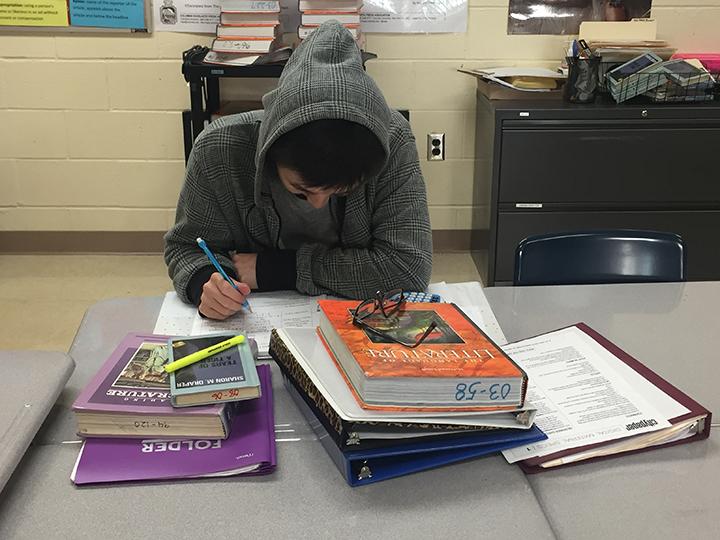School enacts homework ban
More stories from Catherine Hilliard
Many students feel the pressure to cheat
As students enter their homes after a strenuous day at school, they begin their daily after school routines: completing homework assignments, projects, and essays as well as studying for upcoming exams. While most are involved with extracurricular activities or after-school jobs, students struggle to find time to manage all the activities in their schedules.
Denise Pope, a senior lecturer at the Stanford Graduate School of Education, conducted a survey to test the effects of too much homework on students in March 2014. A total of 4,317 students from 10 high-performing high schools in upper-middle-class California communities were surveyed, and 93 percent went on to either a 2-year or 4-year college.
Pope and her colleagues found that too much homework can reduce its effectiveness and possibly be counterproductive. Excessive homework was found to be associated with greater stress on students to maintain their grades, an increase in health issues including headaches, exhaustion, sleep deprivation, weight loss and stomach problems, and less time with family and friends.
Students are “not meeting their developmental needs or cultivating other critical life skills,” as they are forced to drop out of their extracurricular activities, according to the researchers.
The results provided evidence that many students struggled to manage school work, social lives, and after-school activities. Students often found their homework to be “pointless” or “mindless” and only necessary in order to keep their grades up.
“Rather, any homework assigned should have a purpose and benefit, and it should be designed to cultivate learning and development,” wrote Pope.
Schools across the nation have begun to question the effectiveness of homework, with some even discarding homework all together. Kelly Elementary School in Holyoke, Mass. has done just that, providing all instruction and extra help students need during the school day.
Beginning this school year, the Holyoke district, which has among the lowest standardized test scores in the state, is extending its school day an extra two hours, changing the school day from 9 a.m. to 3 p.m., to 8 a.m. to 4 p.m., hoping to give teachers more instructional time with their students.
Junior Charles Marone stated, “I believe that schools should stick with the traditional homework method and school day. Not only does homework reinforce what students have learned during the school day, but it gives students ample time to spend with their families and friends, as well as the opportunity to participate in extracurricular activities, instead of spending most of their day in a desk at school.”
Before implementing this new homework-free atmosphere, the district surveyed the teachers, parents, and students. Receiving mixed reviews, teachers felt that some students needed the reinforcement of homework to better understand the skills being taught, while others felt that homework had no value to the students.
The widespread debate over the effectiveness of homework continues to be debated across the nation.


